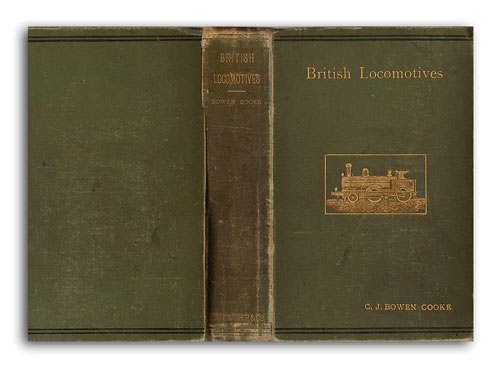Description
Like many LNWR Chief Officers Charles John Bowen Cooke (1859-1920) spent his entire working life with the company – surely an advantage with such a huge undertaking He was an apprentice a Crewe Works in 1875, becoming a private pupil of F.W. Webb in 1878. In 1880, he was appointed Asst. to the Southern Division Running Dept. Superintendent. Cooke remained there, occupying positions of increasing responsibility, until succeeding to the top Southern Division Running Dept. job in 1903. Six years later, he was appointed to succeed George Whale as Chief Mechanical Engineer. It will be seen that Cooke spent nearly 30 years in Southern Division running, and it was about two thirds of the way through this period that “British Locomotives” was first published. There were two subsequent editions.
It always amazes me that busy railway officers found time to research and write substantial books. Harrison’s “Working and Management of an English Railway” was published before he became GM, but he was no doubt in a position to deploy a certain amount of help. Similarly, Cooke acknowledges C.E.Jones of the Loco Drawing Office at Crewe, for the drawings of historic locomotives, and one of his staff at Rugby, R.A. McLellan, for the “constructive drawings and diagrams”.
As one might expect, the volume is weighted towards the LNWR, but the coverage of early steam Locomotion is good, and there is a roll call of virtually every locomotive engineer of a major British railway, who all provided illustrations and information. In fact it is a very good overview of British steam locomotive practice at a time when trains were getting heavier, passengers were demanding faster journey times and the era of the comparatively small locomotives would have to give way to 4-6-0s and Atlantics. (Except of course on the Midland, content to run trains with under-sized, double-headed, “Crimson Ramblers” for nearly three decades more).
Two other Locomotive Engineers published books on the steam locomotive, Hughes of the L&Y and Pettigrew of the Furness. I have not seen Hughes’ book, and Pettigrew extended his writings to cover European and USA developments. Of the three, Cooke’s is generally reckoned to be the best.

Reviews
There are no reviews yet.